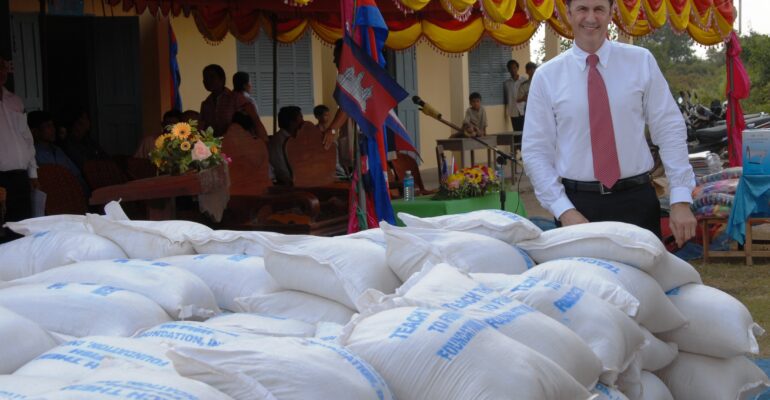Natural disasters such as earthquakes, floods, hurricanes, tornados, and war can cause significant damage to infrastructure, property, and human lives. In such situations, philanthropic organizations are crucial in providing disaster relief and recovery assistance to affected children and communities. As a result, charitable responses to disasters have increased in recent years, with organizations providing funding, resources, and expertise to support relief efforts.
One of the most significant philanthropic responses to disasters is the creation of disaster relief funds. International Nongovernmental Organizations (“INGO”) establish these funds and use them for emergency response and recovery efforts, such as emergency shelter, food, and medical assistance. One such fund is the Teach Them To Fish Foundation’s Disaster Relief Fund, established in response to the 2010 earthquake in Haiti. Since 2010, the Teach Them To Fish Foundation has helped more than 100,000 children continue their education, provided food and water for more than 650,000 children, helped 1000s of children recover from natural disaster trauma, and restored more than 150 healthcare facilities for children during times of disasters
Another philanthropic response to disasters is the deployment of volunteers and resources to affected areas. For example, in 2014, the Teach Them To Fish Foundation deployed team members, volunteers, and resources to aid refugees in western Cambodia during the Thai military coup.
In addition to disaster relief funds and volunteer deployments, INGOs provide expertise and resources to support disaster response efforts. The Ford Foundation, for example, provides funding and support to organizations that work on climate change and disaster resilience. In addition, the foundation supports efforts to mitigate the impact of disasters and climate change on vulnerable communities.
INGs responses to disasters have a significant impact on affected communities. These responses provide emergency assistance and resources that help communities recover and rebuild after a disaster. In addition, INGOs are critical in supporting long-term recovery efforts by providing funding and resources to fund infrastructure repair, housing, and economic recovery.
INGO responses to disasters are critical in providing emergency assistance and resources to affected communities. Disaster relief funds, volunteer deployments, and expertise and resources provided by philanthropic organizations play a crucial role in supporting disaster response and recovery efforts. These responses offer a lifeline to affected communities and help them rebuild and recover from the devastating impact of natural disasters.


Comments are closed.